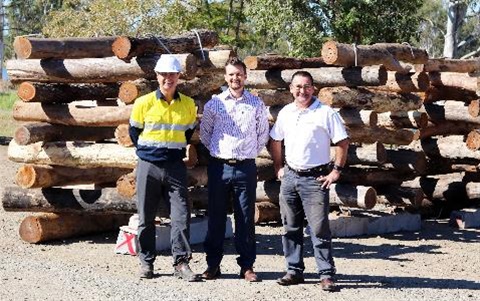Collaborative project to help protect native fish species
Published on 16 August 2018

A number of carefully designed wooden structures have been installed in Yeppen Lagoon today, and will soon become a safe haven for thousands of native fish that call the area home.
The structures, dubbed ‘fish hotels’, were installed as part of a collaborative project between Rockhampton Regional Council and Fitzroy Basin Association (FBA).
Environment Councillor Drew Wickerson said the structures play an important role in improving habitat and future fish numbers.
“We are incredibly proud to be teaming up with FBA for this project as it’s one that will have an almost immediate positive impact on our native fish,” Cr Wickerson said.
“Yeppen Lagoon had been identified as having a lack of habitat for fish species.
“To the untrained eye it almost looks like a giant game of jenga, but these structures are specifically designed to replicate submerged trees and form an artificial habitat for our native fish.”
Fitzroy Basin Association’s Environment Leader, Shannon van Nunen, said the hotels will also help counter some of the issues being caused by pest fish like tilapia.
“These areas are identified tilapia habitats, an invasive species that outcompete our native fish for food and shelter,” Mr van Nunen said.
“Some of our native fish are under severe ecosystem pressure and the installation of these fish hotels across our waterways gives our juvenile fish a helping hand to compete for survival.”
In the past year, the partnership between Rockhampton Regional Council and FBA has seen 30 fish hotels installed at nursery habitat areas across the region.
“Fish hotels get better and more accommodating with time. As algae and food sources grow on these structures under the water’s surface, their biodiversity and habitat value increases,” Mr van Nunen said.